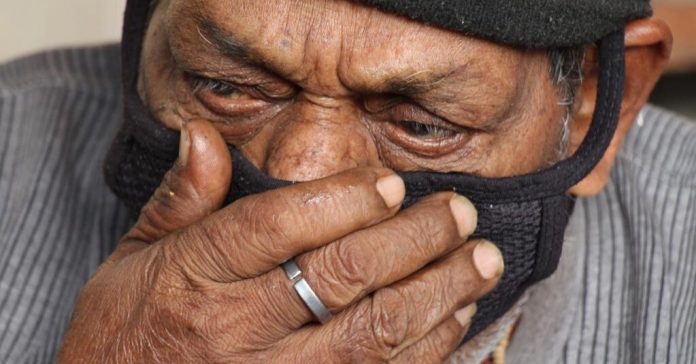This piece is one of 10 winners of our 2022 Profile Contest. You can find more here. Gauri Gupta, the author, is 14 and goes to the The Cathedral and John Connon School in Mumbai, India.
Street Market Sweets
By Gauri Gupta
In March 2020, India experienced the first wave of Covid-19 and went into a complete national lockdown. This made the news worldwide, because of the particular challenges faced by poorer Indians, many of whom had to travel hundreds of miles back to their villages from the cities. It was a highly controversial policy, partly because it, in fact, facilitated the spread of the virus through rural India, and partly because it exposed the vulnerable employment and living conditions of a large swath of the Indian population. These images of chaos and human suffering were seen around the world. What was not reported was the suffering of those left behind in the cities.
Vasudev Govind sells imartis in Chandni Chowk, a busy street market in the Indian capital, New Delhi. An imarti is a Rajasthani dessert of Persian origin that is enjoyed as a popular and ubiquitous street food.
In March 2020, he saw his customers fall to zero. A street once known for its constant buzz and chaos was now silent and empty. Mr. Govind has a family of five children to support. For five months he had no income.
On a recent visit, I went to Chandni Chowk an unhealthy number of times with my camera in hand. With luck, I had the chance to speak to the maker of my favorite imartis. The following are excerpts from conversations with Mr. Govind, translated from Hindi and edited for clarity.
Your imartis are delicious. Have you always been an imarti maker? How did you learn?
Thank you. Well, as you know, most of the shops in Chandni Chowk are ancestral, meaning my great-grandfather used to be an imarti seller, my father and now me! We have been following the same recipe for hundreds of years. This is what makes it so special. So, we live right above the shop, and, every day since I was a kid, I would spend all my time at the shop. I would do my homework in the kitchen, between washing pans and feeding the fire in the stove. All of my childhood memories are in this imarti stall.
When did you first hear about Covid? How did you feel when the lockdown was announced?
Oh, God, I remember the exact moment! Here at Chandni Chowk, people used to mingle and talk to each other, but suddenly everything stopped. In one morning, most of my neighbors just disappeared. They didn’t even have time to say goodbye. It was like the feeling before a war.
Perplexed by the sudden change, I asked the chai wallah [tea seller] what was happening. He told me about a virus and, well, the rest is history, I guess. How did I feel? I felt scared, but not so much from the virus. I’m an old man, and I have faith in God. But I saw my business disappear. That was truly scary. I have children to support, and I don’t know how to do anything else except make imartis. Losing it all is scary because this is life (he spread his hands), and we do not know anything outside it.
What was it like in your household during lockdown?
The reality of lockdown was overwhelming at first, all of us being stuck together in one room. I have a family of seven (laughter). A week into lockdown, life as we knew it had stopped and we could not cope. Everyone was stressed. We all kept snapping at each other. We all had our own private worries. There were times when I had to open my shop up just so I could feed my family.
One good thing happened, though. Throughout history, only the men in my family have made imartis and run the shop. I had the idea to teach my daughters the family trade. They loved it, and it gave us all a feeling of purpose.
What are your hopes for the future?
Businesswise, things are slowly returning back to normal. It is funny because it took less than a day for everything to get destroyed, but it’s taking more than five or six months for everything to become even remotely normal. The buzz at Chandni Chowk is slowly returning, and it is nice to see that! Once tourists are back, it will be even better, I suppose!









